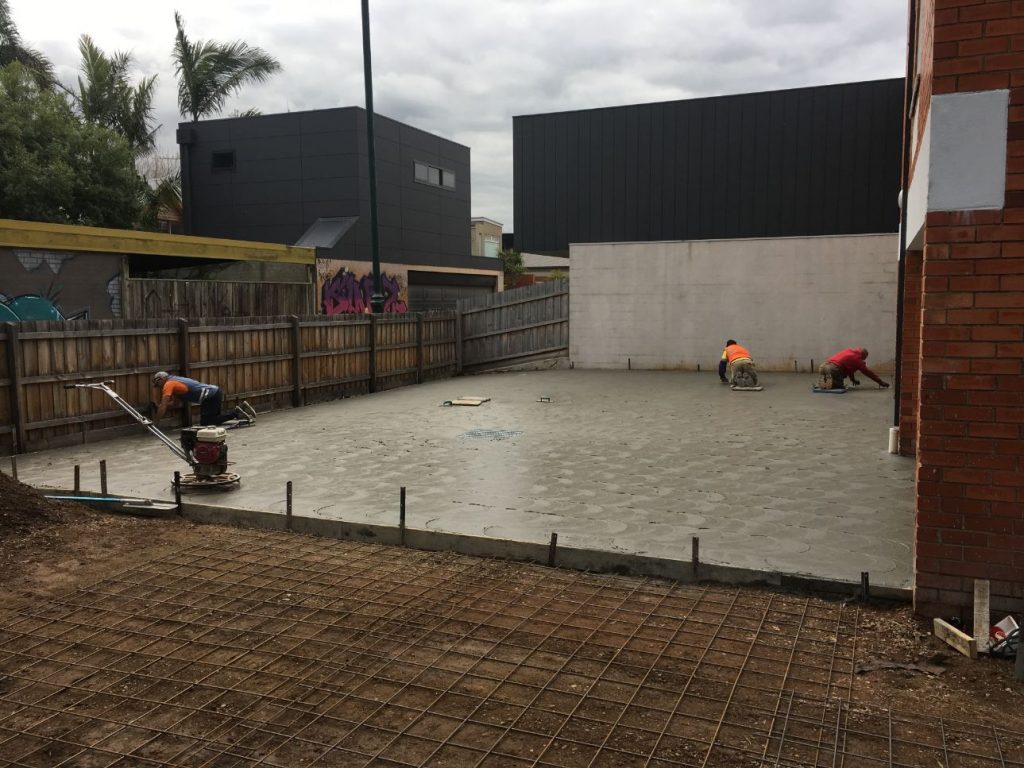Concrete is a solid, porous material that absorbs liquids. Concrete can be affected by a wide range of liquid substances, from water to greases, oils and grime. These liquids can be absorbed into the concrete and made it difficult to remove. Concrete surface life is prolonged by sealing it.
This is how Concreters in Frankston protect against water intrusion:
A concrete sealer alters the concrete’s surface to make it more water-resistant. This means that water molecules will form tiny Concrete is a solid, porous material that absorbs liquids. Concrete can be affected by a wide range of liquid substances, from water to greases, oils and grime. These liquids can be absorbed into the concrete and made it difficult to remove. Concrete surface life is prolonged by sealing it.

How do concrete sealers protect against water intrusion?
A concreter alters concrete’s surface to make it more water-resistant. This means that water molecules will form tiny blobs on concrete instead of piercing it. The water droplets will then just roll off of the surface. Concrete seals provide the same protection from oils and grease so that even difficult-to-remove stains are easy to clean. Sealing is also important for exterior concrete surfaces that are subject to freeze-thaw cycles. It prevents mildew penetration into cement which can lead to black stains.
How does concrete appearance change?
Sealers give concrete surfaces a sheen that highlights the rich colours. Sealing decorative concrete finishes will improve their appearance. Sealing will be a big benefit for exposed concrete because it enhances its beauty. The concrete can be filled with pebbles or small stones. For added colour, you can apply a tinted concrete sealer to a plain grey slab. Regular application of quality concrete sealer to concrete will increase its resistance to fading, wear and cracking.
How often should concrete sealing occur?
There is as such no specific rule. This is because there are many variables, such as the quality and location of concrete and the conditions it is exposed to. Depending on the sealer used, it may last up to three years. You should seal concrete immediately when you see the coating starting to wear. Re-seal coloured concrete as soon you can see the need. Delaying work could lead to slight fading.
It is important to consider whether and traffic. Concrete surfaces that are exposed to sunlight and receive a lot of traffic will wear more quickly than those with moderate footfall. Concrete driveways tend to be sealed more often than sidewalks or patios.
Recommendations – Seal concrete driveways in Frankston once per year, preferably in autumn do prepareings for winter conditions. It is a good idea to re-apply clear seal to concrete that gets heavy traffic or is exposed for prolonged periods. Seal all exterior concrete surfaces, whether coloured or plain, that aren’t subject to vehicular traffic. You can seal your interior concrete floors once but need to apply wax coating every so often. You can apply the next coatings quickly and thinly by sealing concrete floors periodically.
Also, is concrete sealed?
While sealing concrete is obvious, some people do not seal it. You don’t need to seal concrete if you live somewhere with a temperate climate or receive little rain. The truth is that sealing all concrete types improves their appearance and durability, regardless of their location. Sealing concrete can help protect your investment.
Some Concrete Professionals concrete instead of piercing it. The water droplets will then just roll off Concrete seals to provide the same protection from oils and grease so that even difficult-to-remove stains are easy to clean. Sealing is also important for exterior concrete surfaces that are subject to freeze-thaw cycles. It prevents mildew penetration into cement which can lead to black stains.
